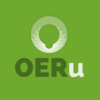2014 Operational priorities
From WikiEducator
< OERu
| OERu strategic planning | |
|---|---|
| Developing the OERu 2014 - 2017 plan | Home | Process | Working groups | Baseline | Consultation on strategic goals & objectives | Operational priorities | Approved strategic plan 2015 -2017 |
Key
- Must be completed as soon as possible as the activity impedes progress of the strategic plan
- Should commence during 2014 but not a critical path dependency or may take longer than 2014 to complete.
- Start if capacity and resources are available
| Priority | Activity | Corresponding objective | Rationale |
|---|---|---|---|
| 1 | Recruit 10 new OERu partners | Recruit minimum number of partners for fiscally sustainable OERu network. | Achieving a fiscally sustainable and scalable OERu network without reliance on 3rd party donor funding is a medium term objective. However, we must meet short term targets to achieve the medium term goal of an additional 20 partners by December 2015. Without funding to support the infrastructure for providing free learning opportunities, the OERu will not be able to operate. The OERu has already achieved 62% of the number of partner institutions to achieve the break even threshold. The sooner we achieve the break even threshold, the sooner we will generate surplus revenue which could be invested in commissioning the development of OERu course to increase product for the OERu. |
| 1 | Develop 20 full courses (or equivalent micro courses) during 2014 | Develop product for the OERu (full courses and micro courses) | To attract students the OERu needs a critical mass of courses available with reference to a coherent programme of study. Without a reasonable number of courses on offer the OERu risks a loss of credibility. Partner teaching institutions should strive to make a contribution to the programme of study during 2014. |
| 1 | Publish for OERu course design including exemplars of best practice | Develop resources to support partners for effective engagement in the OERu network | OERu partners need a practical manual for designing OERu courses including examples of best practice from completed projects. The absence of a partners manual to support design and development will delay progress on course development and may result in unnecessary revisions of course drafts which do not fit the OERu model. |
| 1 | Design and implement a streamlined process for nominating OERu courses | Develop procedures for streamlining nomination of OERu courses | The Proposal for action for course approvals at the 2nd meeting of OERu partners proposed to develop and oversee a streamlined process for nominating courses for the OERu programme of study. The idea is to base course approvals using a concise course description similar to that used for course listings on the OERu website. This is a priority to progress the development and marketing of OERu course product. |
| 1 | Publish operational guidelines for credit transfer and course articulation | Publish operational guidelines for OERu quality assurance, credit transfer and course articulation | This is a priority to progress the development of OERu product. Course developers need guidelines for designing appropriate assessment strategies to maximise credit transfer and course articulation within the network. |
| 2 | Achieve 1 FTE contribution in kind shared among OERu partners for building a community source model for technology innovation. | Build OERu partner community source model for technology innovation and infrastructure support | OERu partners will gain significant benefit from technology enhancements for branding / theming of OERu courses for local delivery and / or integration into the local institutional LMS or alternative delivery platforms. Partners can contribute technology expertise for our open source infrastructure. |
| 2 | Establish alternate pathways (streams) of study within the OERu programme of study | Develop guidelines, procedures and strategies for building the OERu programme of study | Building clear pathways of study leading to the OERu credential and alternate exit points will attract students and build credibility. |
| 2 | Publish quality guidelines for OERu designated courses | Publish operational guidelines for OERu quality assurance, credit transfer and course articulation | The concept of an OERu designated course is a course which meets agreed quality standards for delivery and assessment protocols. Standardising agreed components relating to quality and assessment will enable the network to achieve economies of scale. |
| 3 | Progress the design and development of Academic Volunteers International | Build on the initial design work to develop a sustainable and scalable system for Academic Volunteers International. |
